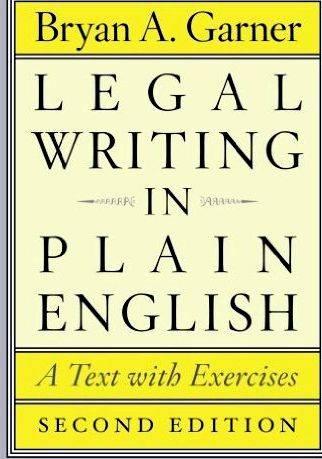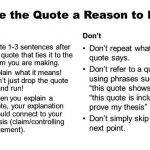Improve Your Legal Writing with Five Simple Rules
Published: The Illinois Bar Journal, 2/97.
Legal writing has a lot in common with other forms of written communication; the same goals still apply. That is, you want to get rid of the clutter, cut out the mess, make your writing efficient and clear.
Sound easy? Then why do so many lawyers have trouble writing a clear, understandable sentence?
Here’s the answer: because it’s not easy.
So many words available to use, so many ways of expressing yourself–it’s a wonder we’re not paralyzed by indecision when we sit down to write a meaningful sentence.
And the truth is, many are.
The good news is there are shortcuts to a clear, understandable style. Keep these five rules in mind and if nothing else, you’ll be able to fake your way to good writing.
Rule #1 Use Concrete Words
A lawyer’s mind is a whirlwind of mushy legal abstractions. You know them well: property interest. subject matter jurisdiction. predecessor corporation. enough to fill a book.
Often, there is no better way to communicate a given thought than with the familiar lawyerly shortcut. But an overuse of abstractions drains your prose of verve and life.
Try substituting a concrete word or phrase when the abstract, alternative choice has no legal significance. Not unilaterally terminated the employee’s job but fired Mr. Smith. Not apprehended the perpetrator but arrested Mr. Jones .
You get the idea. Strive to give your reader a visual image. Avoid empty legalisms. When in doubt, choose the concrete word.
Rule #2 Write in the Active Voice.
We’re reminded to write in the active voice so often we’ve become numb to the importance of this rule. Yet no other will point you more quickly in the direction of a clear, forceful style.
How to do it? Simply put, tell the reader who is doing the acting, and put the actor at the front of the sentence. Not the lease was broken but the landlord broke the lease. Not the statute of limitations was blown but the plaintiff’s lawyer blew the statute of limitations .
It’s almost magical the way beginning your sentences with the main agency of action will crystallize your meaning in the reader’s mind.
Easy enough? Then use the active voice in your writing.
Rule #3 Simplify
Half of writing–in many cases, more than half–is rewriting. Often we’re uncertain about what we meant to say until we’ve read over our first attempts to make our meaning clear on paper.
As you write and rewrite, remember that nothing is sacred. Cut. Prune. Shorten your sentences. Discard the complex and replace it with the simple.
Get rid of the lawyerly verbosities, the pompous mumbo jumbo, the unnecessary legal jargon.
Don’t be embarrassed to rely on one and two-syllable words. Use bullets to set off lists of information.
Ironically, keeping it simple is one of the most difficult things about good writing. Work at it. Your readers will thank you for it.
Rule #4 Make Generous Use of Headlines
A page full of solid text will scare off your readers. Better to break things up with headings and sub-headings that provide a road map to comprehension and, as an added benefit, give relief for eyes grown weary of blocks of text.
An example is the way I’ve organized this article.

It works just as well with legal writing.
Keep your headlines punchy, and try to incorporate your own spin as an advocate.
Not The Three Elements for Recovery under the False Claims Act but Plaintiffs Fail to Prove The Three Elements.
Remember: it’s not enough for your writing to be pleasing to the ear. It should also be pleasing to the eye.
Rule #5 Rely on a Personal Editor
A rule that’s good enough for newspapers, magazines, and book publishers is good enough for you. Let someone else read your important briefs and pleadings before you rashly file them with the court.
Make use of an associate, your secretary, your spouse–anyone who can give your work a fresh reading with an unjaundiced eye.
Aim to make your writing accessible to legal novices. Even if you miss the mark from time to time, you’ll begin naturally to favor the simple construction over the complex.
Ask your readers these questions: Does it make sense? Is it clear? Have I convinced you that I’m right?
If necessary, rewrite.
Then let it rip!
With use of these five rules of thumb, many other hallmarks of the good writer will follow naturally–an authoritative voice, a pleasing style, and with luck, the right result.
MORE LEGAL WRITING TIPS FROM EVAN SCHAEFFER . See the writing category at The Trial Practice Tips Blog





 Writing about your life story
Writing about your life story Thirty days with my father summary writing
Thirty days with my father summary writing Using figurative language in your writing friend
Using figurative language in your writing friend Your guide to writing quality research papers
Your guide to writing quality research papers English 1001 integrating quotations into your writing
English 1001 integrating quotations into your writing






